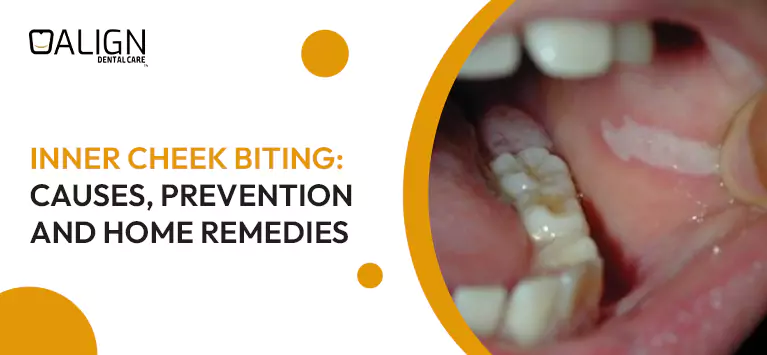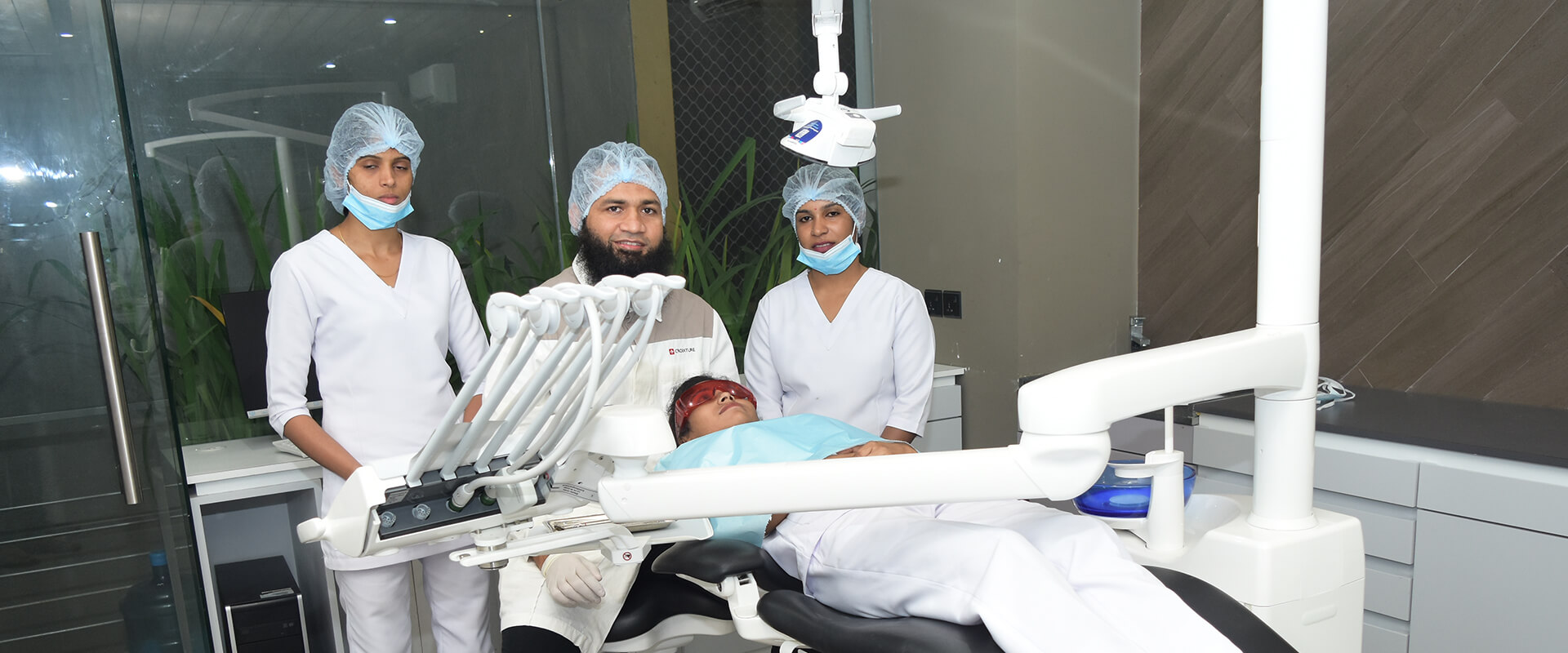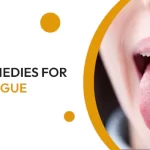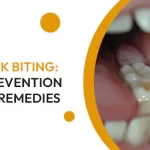Inner Cheek Biting: Causes, Prevention and Home Remedies

Have you ever accidentally bit the inside of your cheek? It’s a common occurrence that can lead to discomfort and irritation. This blog post will explore the causes, symptoms, and practical solutions to help you manage and prevent inner cheek biting.
Inner Cheek Biting
Inner cheek biting, also known as cheek biting or cheek chewing, is a common oral habit that involves biting or chewing on the inside of the cheek. It can lead to discomfort, irritation, and even injury. It can occur consciously or unconsciously and may be triggered by various factors, including stress, anxiety, or simply as a habitual response to boredom or nervousness.
Symptoms of Inner Cheek Biting
- Pain or tenderness in the inner cheek area
- Swelling or inflammation of the cheek tissue
- Difficulty in eating, speaking, or opening the mouth fully
- Recurring episodes of cheek biting lead to chronic irritation
Causes of Inner Cheek Biting
Stress and anxiety: Emotional factors can contribute to developing cheek biting habits.
Malocclusion (misaligned bite): Tooth or jaw misalignment can increase the risk of unintentional cheek biting.
Nutritional deficiencies: A lack of certain nutrients, like vitamin B12 or iron, may lead to oral sensitivity and trigger cheek biting.
Oral habits: Chronic nail-biting or lip-chewing behaviors may extend to cheek biting.
Bruxism (teeth grinding): Individuals who grind their teeth may inadvertently bite their cheeks during sleep.
Effects of Inner Cheek Biting
Biting the inner cheeks can have several effects on oral health. The immediate impact includes pain, swelling, and potential bleeding at the bite site. Additionally, repetitive cheek biting can lead to chronic irritation, which may result in the formation of sores or ulcers in the mouth.
In some cases, persistent cheek biting can also cause scarring and changes in the texture of the inner cheeks. If the problem persists or worsens, it is recommended that you seek advice from a dentist or healthcare provider to explore potential treatment options.
How to Prevent Cheek Biting?
To manage and prevent inner cheek biting, here are some tips:
Stress management techniques
Incorporate relaxation methods such as deep breathing exercises, meditation, or yoga into your daily routine to help reduce anxiety levels that may trigger cheek biting.
Oral hygiene awareness
Maintain good oral hygiene by brushing and flossing regularly to keep the inside of your mouth clean. This can help prevent infections and reduce the likelihood of developing sores or ulcers from cheek biting.
Mouthguards or dental appliances
Consider using a specially designed mouth guard or dental appliance to prevent accidental cheek biting, especially during sleep or heightened stress.
Identify triggers
Pay attention to situations or habits that may lead to cheek biting, such as stress, boredom, or nervousness. By identifying these triggers, you can take proactive steps to address them and reduce the likelihood of biting your inner cheeks.
Chew on alternative items
If you find yourself biting your cheeks out of habit, try chewing on sugar-free gum or crunchy vegetables as a substitute to redirect the urge to bite.
Consult a healthcare professional
If you continue to struggle with cheek biting despite trying these tips, consider seeking advice from a dentist or healthcare provider. They can provide further guidance and recommend specific strategies or treatments to help you manage and prevent this habit effectively.
Home Remedies for Soothing Inner Cheek Biting
There are solutions to stop inner cheek biting. Let’s see how to stop biting your cheek naturally.
Rinse your mouth with warm salt water
Salt water has natural disinfectant properties and can help reduce inflammation in the affected area. To make a saltwater rinse:
- Dissolve about half a teaspoon of salt in a glass of warm water.
- Swish the solution around your mouth for about 30 seconds to a minute, focusing on where you’ve bitten your cheek.
- Spit out the solution and repeat it daily, especially after meals.
Apply a small amount of aloe vera gel or honey
Aloe vera gel and honey are known for their soothing and healing properties. Apply a small amount of either substance directly onto the affected area of your inner cheek. Aloe vera has anti-inflammatory properties that can help reduce swelling and promote healing. In contrast, honey has natural antibacterial properties that can protect against infection and speed up healing. You can reapply a thin layer of aloe vera gel or honey several times a day as needed.
Use over-the-counter oral gels or creams containing benzocaine
Benzocaine is a local anesthetic that can temporarily numb the pain associated with cheek biting. Various over-the-counter oral gels and creams contain benzocaine as the active ingredient. Follow the instructions on the product packaging for proper application. It’s essential to stay within the recommended dosage or frequency of use to avoid potential side effects.
Avoid spicy, acidic, or hard foods
Certain foods can irritate the already sensitive inner cheek tissue and exacerbate the discomfort caused by cheek biting. Spicy and acidic foods and hard and crunchy snacks can further irritate the wound and delay healing. Opt for a soft diet consisting of gentle, easy-to-chew foods like yogurt, mashed potatoes, scrambled eggs, and cooked vegetables until the cheek bite heals.
Stay hydrated
Drinking adequate water is essential for maintaining overall oral health and promoting healing. Staying hydrated helps keep the mouth moist and prevents further irritation to the inner cheek tissue. Aim to drink plenty of water throughout the day, and consider avoiding caffeinated or alcoholic beverages, which can dehydrate the body.
By incorporating these home remedies into your routine, you can help alleviate discomfort and promote healing after accidentally biting the inside of your cheek.
Conclusion
Inner cheek biting can be a bothersome habit that affects your oral health and overall well-being. By understanding the causes, symptoms, and effective remedies discussed in this blog post, you can take proactive steps to manage and prevent cheek biting episodes. Remember to seek professional advice from a healthcare provider or dentist if you experience persistent or severe cheek biting issues for personalized treatment recommendations. By incorporating good oral hygiene practices, stress management techniques, and healthy habits, you can minimize the impact of inner cheek biting on your daily life and promote a healthier mouth.














